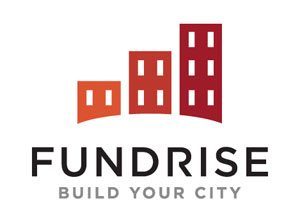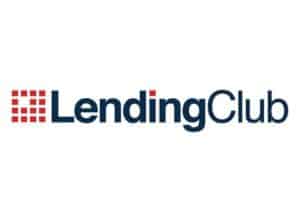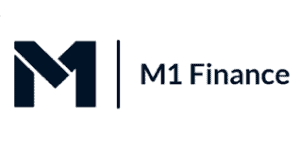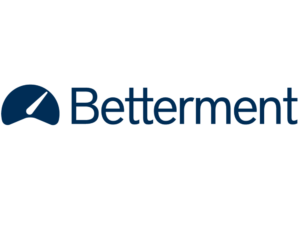8 Best High Interest Rate Investments To Make In 2020
As interest rates on commercial bank savings, municipal and treasury bonds continue to nosedive, the cost of living shoots high up. But this doesn’t mean you necessarily have to start tapping into your life savings to complement your current incomes in sorting bills.
To the contrary, you should be thinking of investing into high-yield ventures, creating extra passive supplemental income streams from interest accrued to complement your monthly earnings or just grow your savings.
But like most people, the first thing that probably comes to mind when anybody mentions high-return investments is, what is the underlying risks?
Well, the truth is that every investment brings with it a fair share of risks. Even the fixed deposit savings and treasury bonds carry with them a share of risks, albeit negligible. And when it comes to investment, the old adage on ‘the higher the risk the higher the possible returns’ remains true.
Today, however, you can take comfort in the knowledge of the fact that technology and innovative developments in the financial an investment industry have made it possible to minimize your risk exposure. The traditionally considered high-risk ventures are turning into high yield safe havens given the massive diversification, hedging, and securitization of debts employed by different investment firms. But, what can you consider to be the most feasible high yield investment options for 2020 and why should you invest here despite the risk warnings?
Why consider high-risk/high-interest investments?
- Above average returns: The returns associated with most of these investments outweigh any possible risks by far. They also promise higher than average returns with most averaging well above 10% of the initial investment and some pushing towards doubling this investment.
- Diversification and securitization minimizes risks: The only reason most conservative investors have stuck with the banks and their laughable interest rates on savings is due to the fear of high risks posed by high yield investments. However, such advancements in the industry like an extensive diversification of investment portfolios and taking collateral for investments have reduced the risk without compromising the rate of returns.
- Readily available: Businesses, governments, and individuals are always looking for extra funding outside the conventional banking systems. And there is always individuals and small businesses that are willing to pay healthy interests on the cash advance if you don’t pay too much attention to their credit rating scores or other loans. The market for high-yield investments is therefore considerably insatiable as every day brings up yet another opportunity.
- Short term investments: Most high yield investments have three peculiar features. They pay above-average returns, they are always in demand and they also are relatively short term. Rarely will you find a high yield venture that requires you to commit your funds for the next seven or ten years. Most are within one, two or three ranges at most and the longer they drag on, the higher the reward.
- Relatively liquid: The fact that most of these investments are always in demand means that they are highly liquid. Ideally, if your preferred investment doesn’t support premature termination, there will always be a secondary market where you can dispose it off quickly in the case of emergencies.
What are the pros and cons of investing in high-yield return ventures?
Pros
- Most are expertly managed and, therefore, wholly passive
- Can be used to hedge against the performance of other investments
- High incomes
- Are great tools when it comes to accelerating your capital growth
- Diversification lowers your exposure to risk
Cons
- Expose your savings to considerably high-risk levels
- Most are not insured
- The returns promised by most of these opportunities is pegged on the current national economic performance
Criteria used to identify the most ideal high yield ventures to invest in 2020:
- The potential return on investments
- Room for diversification
- Risk management tools
- Ease of liquidation and availability of secondary markets
- The time limit for the investment
- Regulation and reputation of the investment vehicle
- Volatility
Best high-return investments to consider this year:
1. Fundrise P2P lender – 12% Return
Fundrise is a real estate oriented peer-to-peer lending company that lets you in on highly rewarding real estate investment projects whose annual return have in the recent past ranged from 8.7% to 12.4%. The site is operated by professional and highly experienced real estate industry operatives who identify and target both residential and commercial properties with the highest potential of bringing in consistent cash flow in the long-term and pool investor funds to invest in them.
Your investments here is then packaged into your most preferred plan where you can either consider turning it into an income generating project with high dividends and low capital growth, a balanced scheme that balances between income stream and capital growth or a pure capital growth plan that values your capital appreciation to earning you supplemental incomes. Aren’t convinced about its effectiveness? Fundrise recently introduced the starter package where you invest a minimum $500 and monitor its performance for 90 days before deciding on whether to invest more cash or withdraw all-together.
Pros:
- Attractive and wholly passive real estate income regardless of your invested amounts
- Thoroughly researched projects minimize your risk exposure
- You have the option of choosing between capital growth through project appreciation and steady incomes
Cons:
- Returns aren’t guaranteed
- Affected by the real estate volatilities
2. PropertyCrowd crowdfunding realtor – 11% Return
PropertyCrowd, yet another peer to peer lending company specializing in the real estate industry, offers to help you make over 11% interest on your investments every year. Its mode of operation is no different from FundRise as it invests in commercial properties with the most promising cash flows. It also has its investment strategies inclined towards either growing your capital investment while earning you decent incomes in the meantime. It, however, prides itself in being one of the most transparent real estate investment companies.
Here, investment decisions are made in the ‘Deal Room’ where the company lays bare every detail regarding every investment on their watch. You get access to the background information about the lenders sponsoring a deal, details about the property and collateral attached, every bit of information about borrowers and their credit history, fees and RICS surveyor valuation report as well as map location of the property. These are aimed at helping you make more informed investment decisions.
Pros:
- Unmatched levels of transparency
- No risk of capital loss as all investments are securitized
- You can invest in several projects to further diversify your portfolio and minimize risks
Cons:
- Requires significant initial investments and thus not beginner friendly
3. LendingClub P2P lender – 10% Return
LendingClub is a pioneer peer-to-peer lender specializing in consumer credit for individuals and small and medium enterprises. Investments in the platform have historically earned lenders attractive annual returns in the range of 4% and 8%. Here, individuals and small business bid for personal and business loans and LendingClub breaks the request into fractional loans dubbed Notes of $25.
This means that a $100 loan can be funded by four different investors and creates room for diversification that in effect goes a long way in reducing the impact a default on such a loan would have on a single investor. Unlike the real estate P2P lenders who require huge investment deposits, you can invest as little as $1,000 at LendingClub. The returns on your investment are determined by the risk associated with the loan as high-risk borrowers pay higher returns and vice versa
Pros:
- Investment diversification minimizes risk
- Low investments make it beginner friendly
- Have a stellar screening process that weeds out high-risk borrower
Cons:
- Deposits into the account are not FDIC insured
- The risk or defaults and delayed payments are ever present
4. Prosper P2P lender – 8.9% Return
Prosper, yet another peer to peer lender has come up with an innovative platform where you can invest in consumer credit by advancing small diversified loans to individual borrowers. The lender uses such screening tools as the FICO credit rating to sort the borrower’s creditworthiness from low to high-risk borrowers with their returns averaging 6.9% and 8.9% respectively. They too start by breaking loan requests into $25 notes, making it possible to diversify your pool and invest as many loans as possible. And if you aren’t sure on the right procedure for sorting different loans, their automated investment tool will handle it for you.
Pros:
- Automated investment tool makes the process wholly passive
- Borrower screening and FICO rating helps reduce instances of loan defaults
- You have total control on the type of loans you invest in
Cons:
- While Prosper may be SEC regulated, investments here aren’t FDIC insured
- No collateral on loans make recovery hard in case the borrower defaults
5. M1finance – 3-4% Return
M1 Finance is arguably the best robo advisor specializing in shares and stock markets trading partner for every American citizen looking to maximize their average returns passively for free. M1 is a fully automated trading tool that guides you through the process of investment portfolio creation and goes on to manage the portfolio on your behalf., It is available in the commission-free standard feature as well as the M1 Plus feature that costs $125 annually.
Some of the factors making it a high yield investment option include its low management fees, automated asset rebalancing, and fractional share investment option where you get to buy a fraction of some of the best-performing stocks. And if you need cash for emergencies, you don’t have to dismantle your investment portfolio, M1 Finance will lend you cash against your deposits.
Pros:
- Automated trading and rebalancing
- Invests in low-risk and low-cost but high-yield shares and stocks
- Supports tax-free investments like IRAs
- The lending option helps you address emergencies without losing focus on your investments
Cons:
- Does not support mutual fund investments
6. Betterment Robo Advisor – 2-3% Return
Investors looking for wholly passive and high-yield investment options in the shares and stock markets will also like the Betterment robo advisor. The automated money markets trader is by far the largest and one of the oldest robo advisors in the country and takes pride in having one of the largest range of investment options and incredibly low management fees that range from 0.25% to 0.40% per annum.
Every aspect of trading with Betterment is automated, including the investment portfolio creation process. Profit maximization comes by way of not just low trading fees and massive diversification, but also through automated asset rebalancing and tax loss harvesting.
Pros:
- Automated investment portfolio creation
- Gives you access to Nobel-prize winning trading algorithms
- Low fees and even lower minimum operating balances
Cons:
- The investment portfolio isn’t personalized
7. Initial Coin Offerings (ICO)
Do you consider yourself a high-risk investor and are you constantly drawn to some of the high-risk but highly rewarding ventures? You will like initial coin offerings for the cryptocurrencies. To illustrate how rewarding investments in a coin offering is we look into the evolution of Ethereum, the second most popular and one of the most traded coins. By the time it hit the market in August 2015, it was valued at $0.30 but by February 2018 it had shot to over $1300+ recording a massive 4000%+ return on investment.
New coins are launching on a daily basis and backing the right horse here may see you earn equally impressive returns on investments a few months or years down the line. And deciding on the right coin to invest in starts with a comprehensive evaluation of the brains behind its development, the viability of the challenge they seek to solve, and factoring in the opinions of the cryptocurrency industry think tanks.
Pros:
- The unmatched prospect of high returns
- Ready market and relatively easy to liquidate
- Easily accessible for virtually every global citizen
Cons:
- You risk losing significant capital if the coin never takes off or takes too long to gain pace
- Highly volatile
8. Crypto Investments – Up to 200% Return
If you are not ready to gamble with the likelihood of a coin taking off soon after launch or falling into oblivion, you might be interested in the equally high yield niche, crypto trading. This refers to the art of either investing and holding onto existing and well-performing coins with the hope of significant value increase in the near future or actively buying and selling within the crypto exchanges.
While it may be one of the newest entrants into the global money market scene, crypto trading has carved out a name for itself among highly rewarding trading options. While everyone else is avoiding this market citing volatilities, experienced traders are using it to launch successful careers.
Pros:
- Highly popular and thus highly liquid
- Has the record for the highest returns in the shortest time
- Highly secure and low extremely low transaction costs
- No central control of the market and price action is influenced by pure market dynamics
Cons:
- Extremely volatile markets whose direction can change in minutes
- Rampant cases of hacks and software bugs lead to loss of investments[
How do you decide on the most feasible investment opportunity for you?
- Evaluate your risk tolerance: Each of these high-yield investments brings along its fair share of risks ranging from defaults on loans, miscalculation of market forecasts, and sudden negative economic news. Others have the backing of assets as collateral for invested amounts. When deciding on an investment we advise that you settle for the one with what you consider the most tolerable risk levels.
- Examine your familiarity with the investments: If you are a career stock real estate trader, you are better off sticking to high yield investments relating the field. This gives you a better chance of vetting the investment opportunity, spotting its strengths and weaknesses as well as identifying the best market entry and exit points that guarantees maximal returns.
- Determine the time limit to achieving your financial goals: How long does it take the investment to mature and how long are you willing to wait. Understand that while some opportunities only take hours or days to realize meaningful profits, others take months and even years. This then begs the question of how long you are willing to wait.
- Decide on the investment management: Are you looking forward to actively managing your preferred high yield investment option or will you leave it to the experts? If you are not proficient enough in a particular high-yield investment option or just don’t have enough time to actively manage the fund, we advise that you consider committing your funds to an expertly managed investment.
- Factor in the impact of fees and charges on your net returns: When deciding on an investment, especially the expert-managed platforms, you must also take into account the management fees and charges. Note that enormous fund management fees and charges often end up eating into your net returns.
Bottom line
In the finance and investment sector, big wins call for even bigger risks. If you hope to have your money earn you decent returns that boost capital growth or act as supplemental incomes, you must be willing to get out of the investment comfort zone and experiment on some of the high-risk high yield ventures we have listed here. This call shouldn’t, however, be construed as an invitation to join every other get rich scheme out there. Your high-risk investments should be well calculated and informed by data.
For instance, before investing in a peer to peer lending company, check the site’s average default rates, borrower screening process, and debt recovery procedures and only invest if you feel comfortable with either or all of these. And if you don’t know where to start, our list touches on different facets of the investment sector, you just have to consider what industry you are most comfortable investing in.










